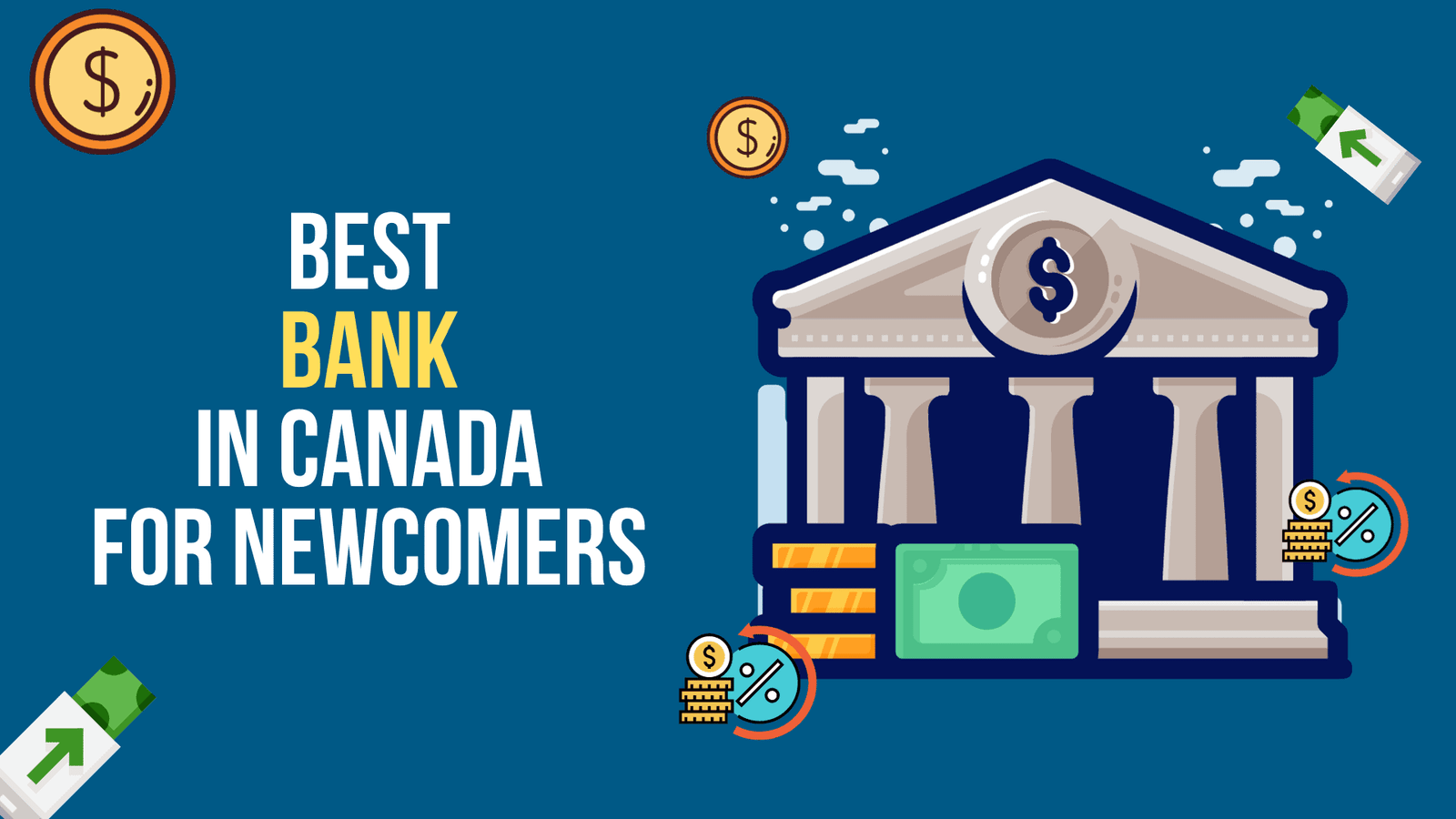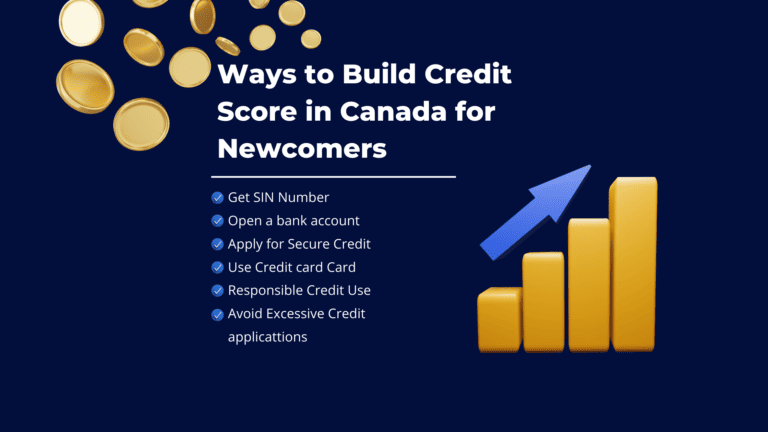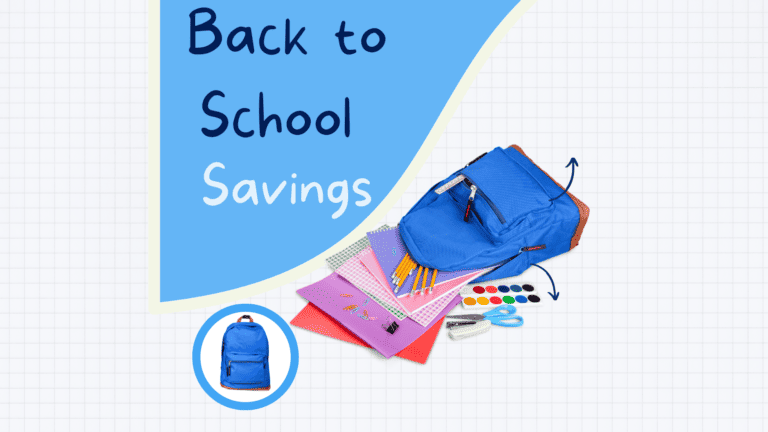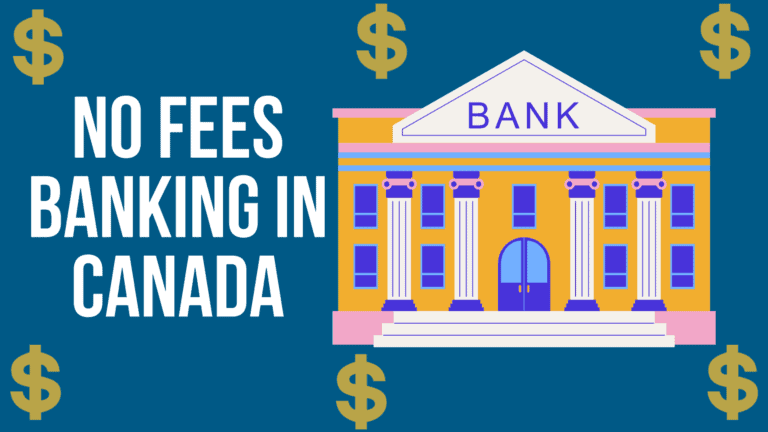Picking the right bank account when you’re new to Canada is like finding the perfect winter coat – it’s all about making sure it suits you.
Let’s take a stroll through your banking options in the Great White North with a friendly and easy-to-understand guide. Traditional Banks for Newcomers:
But wait, there’s more! The financial world is evolving, and so are your options.
Digital Banks:
You can explore digital banks like Tangerine,EQ Bank and Wealth Simple, and Simplii Financial, where you can manage your money online from the comfort of your home. These online banks often have lower fees and competitive interest rates.
- Tangerine: Tangerine offers no-fee banking, including a no-fee chequing account and a savings account. They also offer a variety of banking products and services, including mortgages, credit cards, and investments. When you open a chequing account with Tangerine then use Orange Key 67406394S1 and you will get a $50 bonus. Tangerine bank is owned by Scotiabank Below are some of the key features
- 0$ fees on checking account
- Up to 0.10% interest payment on your account balance
- Free access to 3,500 Scotiabank ABMs nationwide and 44,000 ABMs worldwide through Scotiabank’s Global ATM Alliance.
- Free and unlimited Interac e-Transfers
- Simplii Financial: Simplii Financial, which is owned by CIBC, offers a no-fee chequing account, as well as other banking products and services, including credit cards and investments. Below are the key features.
- No monthly or minimum balance is needed for checking and saving bank account
- Free access to all CIBC ATMs across Canada
- Unlimited Interac e-Transfer and debit transactions
- Get real-time USD exchange rates
- I have been using Simpli Financial and use my referral link https://mbsy.co/6qp92v to get a $50 bonus plus, get $400 When you open a No Fee Chequing Account.
- Wealth Simple: Wealthsimple is a financial technology company that provides a range of online financial services, including investment management, savings accounts, and a no-fee chequing account. Here are the key features of Wealth Simple Spend and Save account, , This account checks more boxes than a chequing account.
- $0 monthly account fees
- 4% Interest with no minimum balance
- Unlimited number of transactions, including debit purchases, withdrawals, and bill payments
- Send up to $5,000 per day or $10,000 per week to anyone, anywhere with Interac e-Transfer.
- Free access to ATMs across Canada
- No Foreign Exchange Fees
- I have been using Wealth Simple for the last 3 years and use this reference link to get rewarded to open an account with Wealth Simple, if you ask referral code then use code UBK02W
- Also if you have an account with Rakuten.CA then you earn $5 for opening account with Wealth Simple. You also earn $30 for registering with Rakuten.CA
- EQ Bank: EQ Bank offers everyday banking account, no separate account for savings/chequing, bank offers no monthly fees and no minimum balance requirements. They also offer Guaranteed Investment Certificates (GICs) with competitive interest rates, US Dollar accounts, TFSA Saving account and RRSP Savings account, here are the key features
- Unlimited transactions with no fees on everyday banking
- Free and unlimited Interac e-Transfers®, bill payments, and Electronic Funds Transfers
- Free withdrawals from any ATM in Canada ( they reimburse any fees)
- No FX fees monthly fees, or other hidden fees
- Alterna Bank: Alterna Bank offers a free checking account with no minimum balance requirements, as well as other banking products and services such as credit cards, loans, and mortgages.
- No monthly fee; No minimum balance is required
- FREE, unlimited day-to-day transactions1
- FREE, unlimited Interac® e-Transfers
- Award-winning No-Fee eChequing Account
- Access to over 3,300 ATMs in THE EXCHANGE® Network – Canada’s largest ATM network, surcharge-free! In the United States, access 40,000 surcharge-free ATM’s through the Allpoint Network.
- Motusbank is owned by the Meridian Credit Union and offers a no-fee chequing account, high-interest savings account, mortgages, personal loans, investments, and more, below are some of the key features
- $0 monthly account fees Up to 0.15% interest payments on your account balance
Keeping Your Money Safe:
Your money is safe in Canadian banks. The Canada Deposit Insurance Corporation (CDIC) insures your deposits up to $100,000 per category per bank. So, your money is protected, just like your favorite hockey team protects the net.
Before You Open an Account:
Before deciding on a bank and account, here are some important factors to consider:
- Fees: Different banks have different fee structures. Make sure you understand what you’ll be charged for account maintenance, ATM withdrawals, and other services.
- Accessibility: Check if the bank has branches and ATMs near your home or workplace, making it easier to manage your money.
- Credit Building: Look for banks that offer credit-building options, as establishing a good credit history is crucial for your financial future in Canada.
- Online and Mobile Banking: Ensure the bank offers online and mobile banking services for easy account management.
- Language Support: Some banks provide services in multiple languages, which can be helpful if you’re more comfortable in your native language.
- Additional Services: Consider your future financial needs, such as savings accounts, investments, and mortgage services. Some banks may offer better options in these areas.
While Canadian banks offer attractive newcomer bank account packages, it’s important to be aware of potential limitations, fees, or requirements that might be associated with these offers. Here are some common considerations or “catches” to keep in mind:
- Limited Duration of Benefits: Many newcomer bank account packages offer special benefits for a limited time, typically the first year. After this initial period, regular account fees and service charges may apply, so it’s essential to understand the long-term costs.
- Minimum Balance Requirements: Some banks may require you to maintain a minimum balance in your account to qualify for fee waivers or additional benefits. Falling below this balance might result in fees.
- Credit Card Restrictions: Credit cards included in newcomer packages may have lower credit limits and fewer features compared to standard credit cards. It’s crucial to review the terms and conditions of these cards carefully.
- No Credit History: While many newcomer packages offer credit cards without a credit history, these cards might have higher interest rates. Building a strong credit history should be a priority to access better financial products in the future.
- Transaction Limits: Some accounts have limitations on the number of free transactions you can make each month. Additional transactions may incur fees.
- Mortgage and Loan Terms: If you’re considering borrowing for a home or other purposes in the future, be sure to understand the terms, interest rates, and requirements for obtaining loans or mortgages through these banks.
- Account Closure Fees: Be aware of any fees associated with closing your account. If you decide to switch banks, these fees could affect your decision.
- Proof of Eligibility: To qualify for newcomer accounts, you may need to provide proof of your newcomer status, such as a permanent resident card or a valid work or study permit. Ensure you have the necessary documents.
- Online-Only Accounts: Some banks may offer digital-only banking packages for newcomers. While this can be convenient, it may not be suitable for everyone, particularly if you prefer in-person banking services.
- Limited Language Support: While many banks provide multilingual services, not all languages may be supported. Check if the bank offers services in your preferred language.
How to open a bank account as a newcomer in Canada?
If you’re new to Canada and want to open a bank account, here are the simple steps to follow:
- Look at different banks and credit unions to see which one offers the best deals for newcomers.
- Apply for an account online. You’ll need to provide your name, address, and contact information, as well as details about your status in Canada.
- Give the bank the necessary documents. They’ll ask for identification, like a Canadian driver’s license or a valid passport. You’ll also need to prove that you’re living in Canada, which might mean showing a permanent resident card or work permit. They could also ask for proof that you’ve entered Canada.
- Once your account is set up, you can put money into it and set up direct deposit for your income.
Who qualifies as new to Canada?
To be considered “new to Canada” and eligible for a newcomer account at a bank, you generally need to meet these requirements:
Newcomer bank accounts FAQs
Conclusion
To make an informed decision and avoid surprises, it’s essential to carefully read the terms and conditions of any bank account package for newcomers and ask questions if you’re uncertain about any aspect.
Additionally, you may want to consider your long-term financial goals and how the account aligns with them. Remember that the specific terms and features can vary between different banks and their newcomer account offerings.
Opening a bank account in Canada is like building a strong financial foundation for your future, much like constructing a snow fort. It might take some effort, but once it’s set up, you’ll have a secure place to nurture your financial goals. So, let’s lace up our skates and explore Canadian banking together! ????????







